The Road to Bwindi: The journey of a Fulbright Scholar and his family
LuAnne and David Brubaker with Aruna Emmanuel at his graduation from Uganda Christian University
As has been the case for many people, our adventure in Bwindi started with a brief conversation with Dr. Scott Kellermann. When we met Scott in February 2023 at our hometown of Houghton, NY, we did not know that in southwest Uganda, Dr. Scott has rockstar status, is known and loved by multitudes, and that his work among the Batwa is the stuff of legends—dangling IVs from ficus branches to bring medical care to local communities. During that initial interaction, Scott described meaningful Kingdom work among conservation refugees, compassionate medical care and essential training to provide healthcare in an undeserved area. Scott invited us to be a part of it by applying for a Fulbright teaching grant. His invitation came at a time when David was feeling burned out, and it stirred an excitement not felt in a long time. So we began the journey that would eventually lead down the nearly impassable Buhoma road to the Bwindi Impenetrable Forest.
The Fulbright U.S. Scholars Program, administered by the U.S. State Department, aims to “increase mutual understanding between the U.S. and other countries through academic, professional and cultural exchange.” David was granted a 10-month Fulbright award to teach Anatomy and Physiology at Uganda Nursing School Bwindi/Uganda College of Health Sciences Bwindi (UNSB/UCHSB), associated with Bwindi Community Hospital (BCH), the present-day manifestation of Scott’s ficus tree ministry. So, in August 2024, funded by Fulbright, hosted by UNSB/UCHSB and supported by the Kellermann Foundation, we arrived in Bwindi and began a rewarding and refreshing period of sabbatical, serving alongside dedicated Ugandan colleagues and other expat volunteers from all over the world.
The teaching staff at UNSB/UCHSB carry multifaceted loads—teaching, administration, admissions, promotion, recruitment, maintenance, sports mentorship, and ward supervision. The privilege of having dedicated staff to address these functions of institutional life, as we do here in the US, is unheard of at UNSB. In addition, many of the staff are pursuing their educational advancement on the weekends. David was grateful to learn that his presence lightened a load when it was needed. The school is in a transition period, having applied for university status, and this past year was one of full-on preparation for the launch.
Teaching Anatomy and Physiology to first year nursing and clinical officer students proved to be challenging and rewarding. Adjusting to a new educational system, learning about students’ backgrounds, managing power outages, modifying linguistic cadence and pronunciation—all of these made the first semester feel as if David was on a steep learning curve. But with the patience and guidance of supportive colleagues and students, it was a wonderful semester of mutual learning. By the time second semester rolled around, David was ready to take on additional course units, co-teaching Tropical Medicine for third year nursing students. With his interest in teaching rekindled, he plans to teach upper-level students at Houghton University this fall.
David Brubaker with UNSB staff and students.
The Batwa Development Program (BDP), also under the Kellermann Foundation umbrella, has acquired land, built community bandas, homes, latrines and water systems, provided agricultural training, built and managed schools, and funded education and healthcare. LuAnne, pictured below with BDP Education Assistant Charity Kesande, found her niche volunteering with the BDP. Attending leadership meetings provided an opportunity for her to offer an outside perspective, asking clarifying questions and encouragement. She helped the BDP launch an expansive educational opportunity called Uplift Batwa Talents. Targeting young people under 35 and especially women, the program funds secondary and tertiary education, as well as vocational skills training. Uplift Batwa Talents has the potential to be transformative in the ongoing transition that the Batwa have been navigating since their eviction from the forest in 1991. LuAnne joined team members in the field as often as she could, accompanied by David whenever possible. Learning about the Batwa’s history and challenges gave insight into the complexities of nurturing Batwa personal advancement without fostering dependency. The placement of dedicated, highly competent social workers in each settlement was encouraging, promising to provide continuity of training, accountability, and on-site support. It was a privilege to be invited into the work of the BDP as they seek to empower Batwa in daily life, provide opportunities for educational growth, and incorporate them into leadership positions.
The greatest highlights of our time in Bwindi were in the relationships with teaching staff and students, BDP staff, hospital personnel, local friends, and a host of volunteers and researchers who served alongside us. We shared many meaningful conversations, tasty meals, joyful worship, and milestone celebrations with new friends. Bwindi offered a rich context for sharing life and faith that enlarged our world, opened our eyes more fully to the needs of others and broadened our perspective of the compassionate and loving work of Christ among vulnerable populations. We are grateful to Fulbright, BCH, the BDP and the Kellermann Foundation for this refreshing year in Buhoma. Now back in the U.S., we are praying about how to incorporate what we learned and how the Lord may open the door for ongoing involvement in the important work happening in Bwindi.




